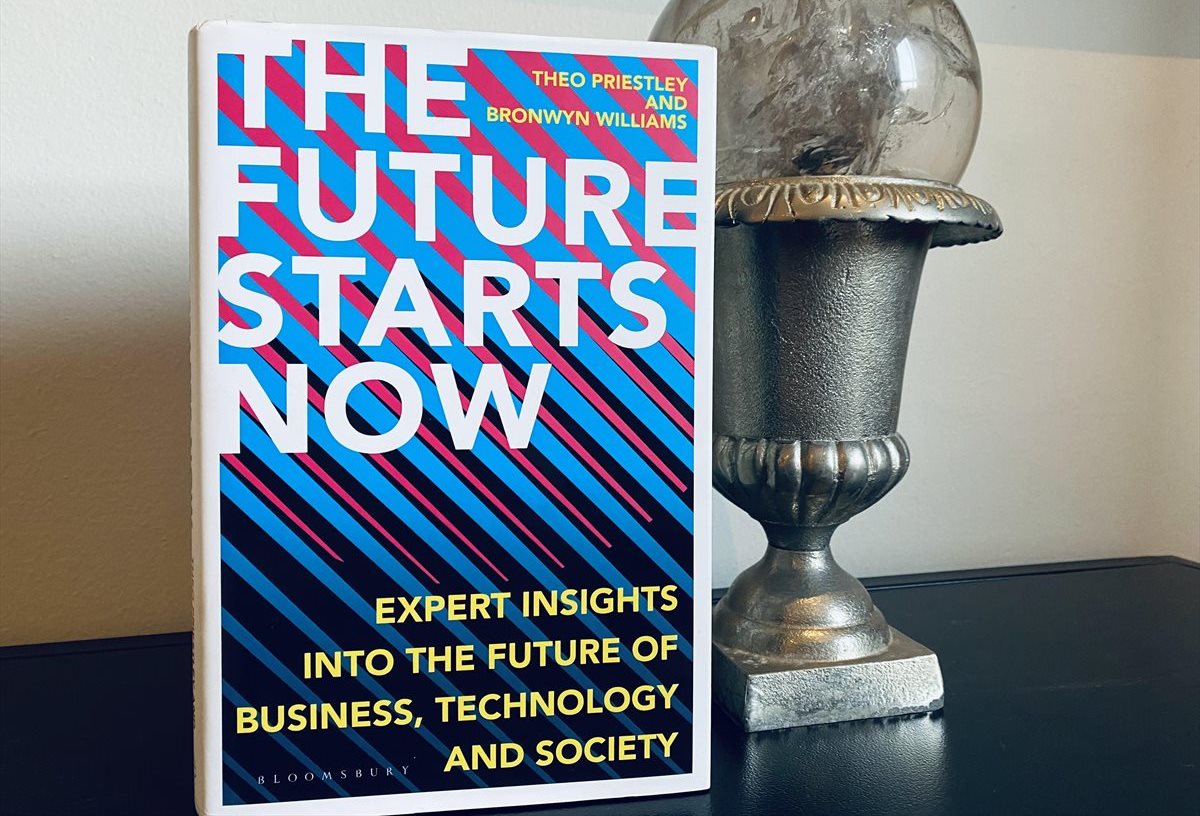#PulpNonFiction: Pragmatic protopias and why everyone is a futurist

Instead of reading someone else’s book this week, I’m revisiting a book I co-wrote myself, The Future Starts Now.
The Future Starts Now is a collection of essays from futurists from all over the world; with a simple challenge to you, the reader, to change the things that we wrote about that make you uncomfortable.
Because that is what we need right now. People brave enough to actually do something about what we see and know is going wrong in the world.
Why we are stuck in the "infinite now”
Postalgia is a term used by science fiction writer William Gibson to explain the future fatigue plaguing contemporary culture.
Postalgia is similar to nostalgia; however, where nostalgia is a hankering after the lost past, postalgia is a hankering after the lost future. Postalgia is, in other words, the sense that things right now are as good as they will ever get.
This increasingly prevalent pessimistic worldview is the result of the long slow decline in productivity and equality of progress we have seen in much of the developed world in recent decades. It is the result of the hopelessness of postmodernism; the pointlessness of existence without belief in anything beyond the here and now; the trap of being caught in the endless now. Postalgia is the curse of a civilization without a past it can be proud of and without a future worth believing in; a society left without any unifying grand narrative to follow or substantial positive vision to work towards.
Defeat inertia with optimism
This rather practical view of the future deviates from mainstream shiny pop futurism (of the sort that has popularised the fairy tales of never-ending exponential growth) and instead involves exploring pragmatic protopias, which recognise that perfect utopias are a mirage. Designing protopias requires us to recognise our own brilliance's limitations and replace the idea of what is perfect for you or me with more practical and inclusive shared future ideas. This in turn means we need to understand the potential dangers of current trends and trajectories; use foresight to extrapolate the intended and unintended consequences of our pet policies and favoured choices; and stretch our imaginations to explore the limits of possible, preferable alternatives.
Right now, the world is desperate for good public and private sector leaders with clear – and desirable – visions of what the future could and should be. Humans have a deep desire for something worth believing in, something worth working towards, something worth building together. This means the future is a huge source of competition for individuals and organisations with the courage and the competence to both imagine it and inspire others to help them build it. The future has to be imagined and articulated before it can be actualised. I believe that, with enough of us doing that imagining and articulating, we can come up with some better ideas than the ones currently lying around.
Of course, this vacuum of new and interesting future ideas is both an opportunity and a threat. It is certainly an opportunity because it is open for anyone to claim as the future is uncharted territory. This means that your ideas of the future – should they be big and bold enough – have, in theory, as much a chance of changing the world as anyone else’s.
At the same time, however, it is a threat, in that the future is constantly at risk of being hijacked by the personal agendas of powerful corporations and individuals. Since one person’s idea of utopia could very well be your or my idea of a perfect dystopia, we must include more individuals, more communities, and more companies in conversations about where the world is heading, and if this is, indeed, where we want to go at all.
Human progress is a team sport. More perspectives result in more ideas to solve the world’s wicked problems. More collaborative conscious design of preferable futures that address the unique needs of individuals and communities will result in more stable and more sustainable societies and more equitably distributed progress for humanity.
This means everyone, including you, can (indeed should) become a futurist and begin to explore the limits of what is possible and what is preferable for you, your organisation, your communities, your nation, and for human civilisation at large.
You do not require a degree in future studies or official certification to become a futurist.
All you require is an enquiring mind, the courage to ask questions, and the willingness to let go of the probable to imagine the possibilities.




































